Venue closure prompts calls to protect music scene
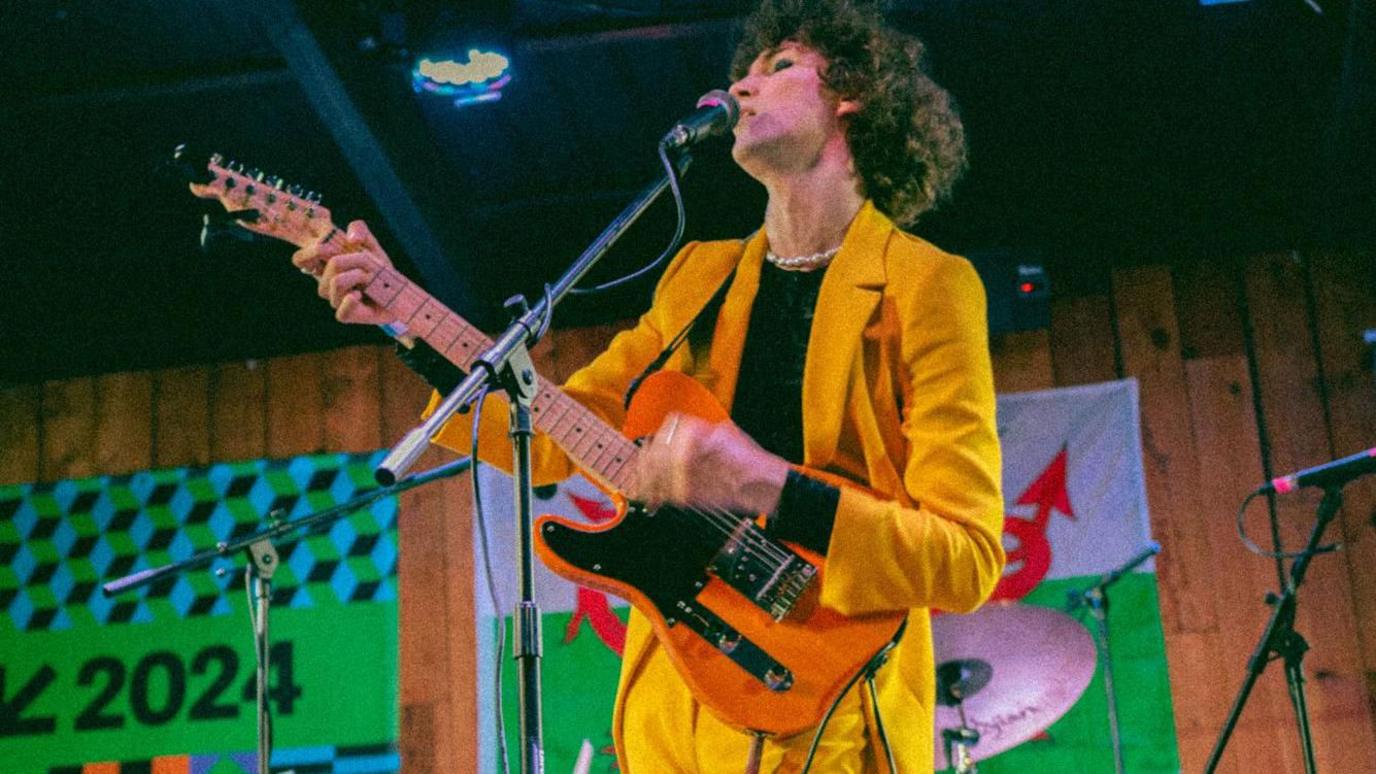
Otto Aday has played international festivals after grassroot support in Cardiff
- Published
Calls have been made to protect spaces in the "music city" of Cardiff after the sudden closure of one of its most renowned venues.
The Moon, on Womanby Street in the city centre, closed its doors for the last time in November.
Cardiff was named the UK's first Music City in 2017 as the capital stepped up its efforts to protect grassroots venues.
The city council said a long-term strategy is in place to support, develop and promote the Welsh capital's music sector - but is enough being done?
Struggling music venues get £718k to secure future
- Published3 February 2024
Leading music venue reveals big expansion plans
- Published22 August 2023
Boost to city's live music scene
- Published14 December 2017
The closure of The Moon is the latest in a long list of venues that have been lost in the city in recent times, including Gwdihŵ, Buffalo and 10 Feet Tall.
Former promoter and technical manager at the venue Ed Townend is quite pessimistic, and said: "The future's pretty bleak."
He described how staff did not find out about the closure until the day.
"A music venue like The Moon was everyone's first step," Ed added. "A lot of people's first gigs were here, or their first gigs that they put on themselves were here."
Ed said the closure meant fewer opportunities for emerging artists in the city, who relied on venues such as The Moon for their early gigs.
He said: "To have a venue like The Moon that was so in touch with the community, that first step is now gone.
"You have to make a bit of a giant leap to get to where you need to go, which isn't really possible now in Cardiff.
"With music venues, the profit margins are so slim that one bad week, one bad month, can tip you over the edge."
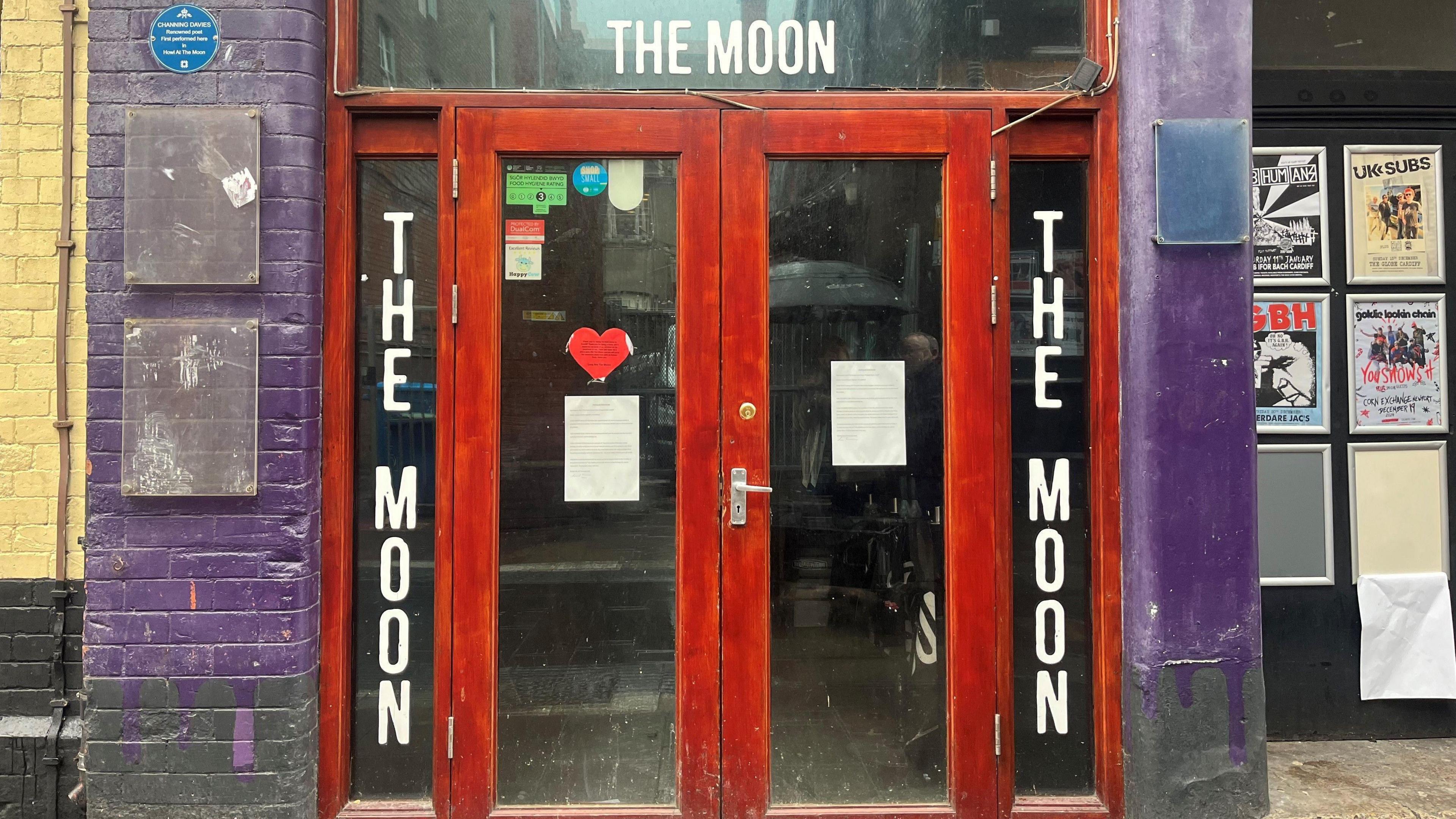
Grassroots venues such as The Moon have struggled with rising costs
Ed said he worried that not enough safeguards were in place to protect the future of grassroots music in Wales.
"I want to remain optimistic," he said. "But when you work in the music industry there's a level of cynicism and naivety that you try and tread a fine line between.
"It's about thinking about what more can be done to protect places like these from closing, and closing an avenue for people who enjoy music."
Cardiff was named the UK's first Music City in 2017, as the capital stepped up its efforts to protect grassroots venues.
The move aimed to protect grassroots venues and boost the city's international profile, while attracting the world's biggest stars.
Seven years on, in 2024, the city hosted its first Cardiff Music City Festival, external.
The festival spanned 24 days, 25 venues and featured more than 200 artists, ranging from the likes of Welsh language emerging folk artist Mari Mathias, to 2024 Mercury Prize winner English Teacher.
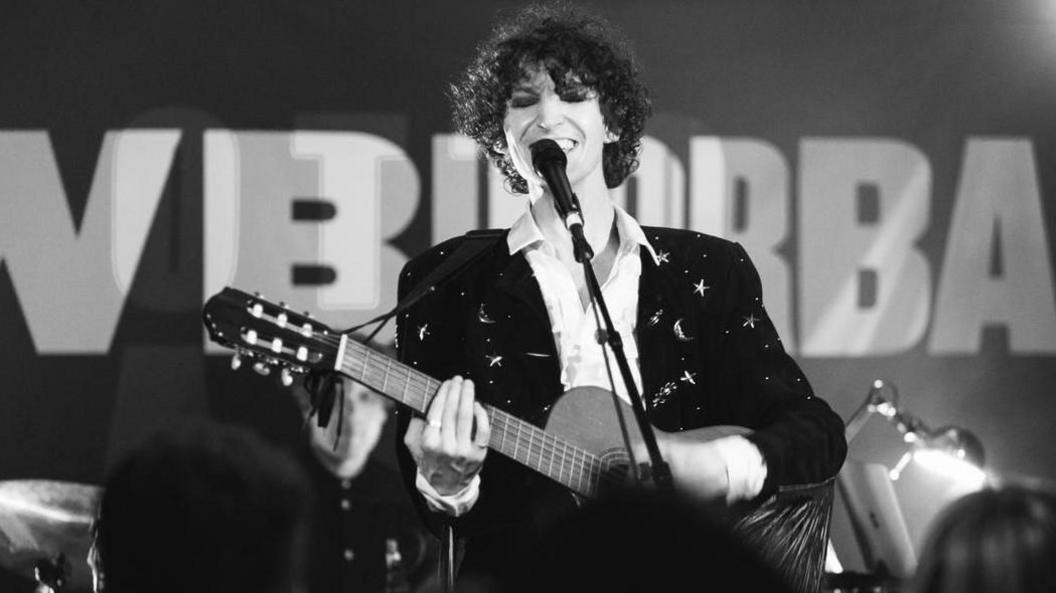
Cardiff venues have played a crucial role in Otto Aday's career
Christian Punter, from Ferndale in Rhondda Cynon Taf, a singer-songwriter who performs under the alias of Otto Aday, had his first Cardiff headline gig at The Moon.
He has since gone on to perform at international music festivals, recorded his debut album Persona in Nashville under Bay Street Records, and supported Sir Tom Jones on his 2018 tour.
Christian said that closing smaller venues cut off a lifeline of support for emerging artists.
"If you're booking a show at a local venue, you can sell merch and build your fan base," he said.
"It's not only about getting your music in front of new crowds, but as an up-and-coming artist, you discover your voice in these smaller venues, to refine your sound and discover who you want to be as a songwriter and artist."
"Once you're playing stadiums, you already know who you are."

Aleighcia Scott presents a soul and reggae show on BBC Radio Wales
Welsh-Jamaican reggae artist and presenter Aleighcia Scott agreed, saying that without early experiences on stages such as The Moon's, artists would never be ready to play larger arenas or venues such as the Principality Stadium.
"You really need as an artist the early experiences of performing in stages to know what you need, the technicalities of performing, and to build your audience," Aleighcia said.
"I worry for emerging artists, with less opportunities to perform".
Aleighcia's debut album, Windrush Baby, was released in 2023, and the following year, she was invited to join The Recording Academy (GRAMMY) New Member Class to celebrate and advocate for music.
In Aleighcia's early career, she performed in venues such as Gwdihŵ.
"An upcoming artist couldn't potentially perform at a 2,000-capacity venue, because they need to build their audience first," she said.
"Take that away, and the music scene won't be as healthy in Wales.
"We had Cardiff Music City Festival this year, which is definitely a great thing for Cardiff to have.
"I'm hoping on the back of that things might start opening, there's such a need for that here."
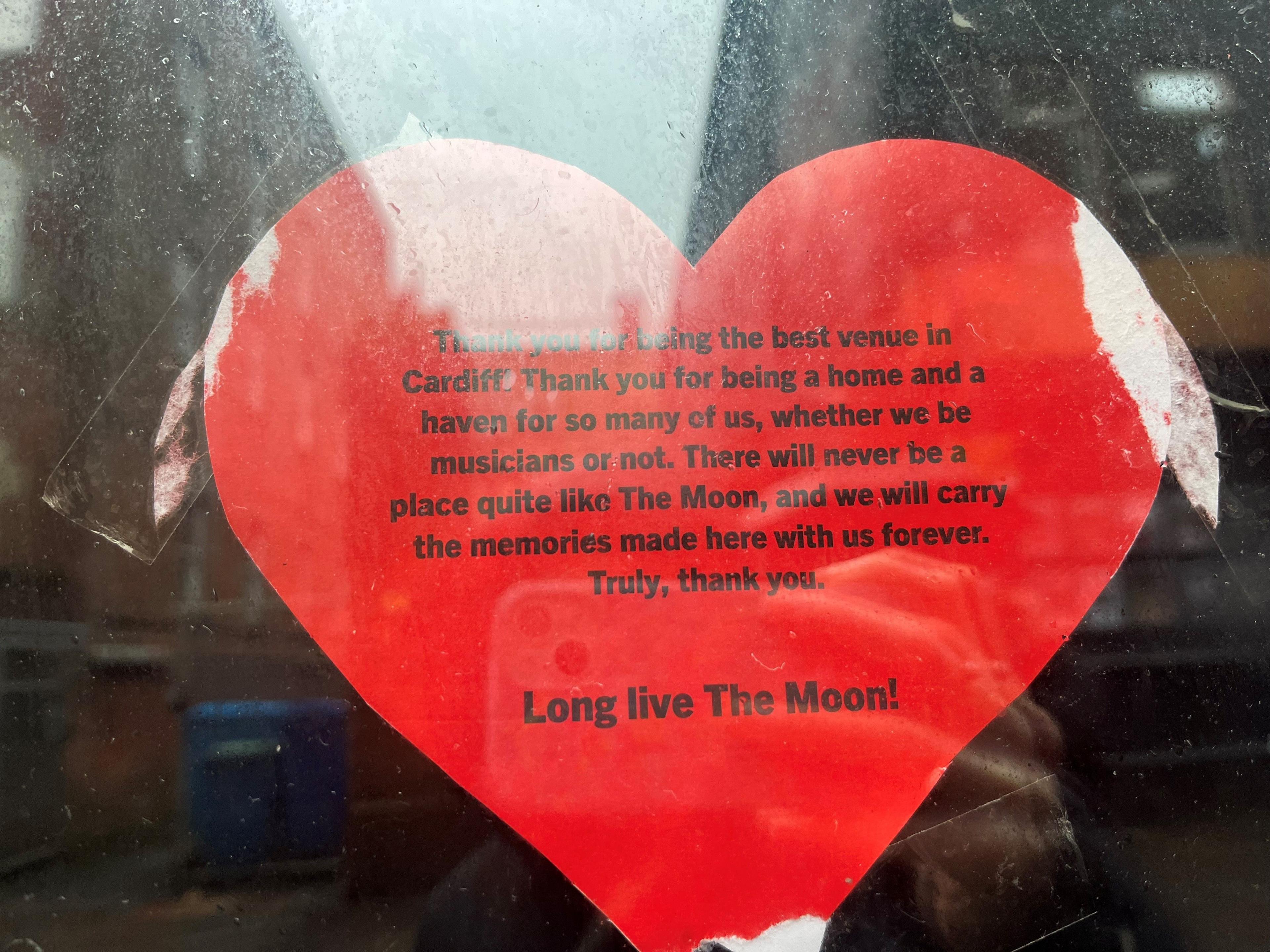
Fans of the venue left notes on the door thanking staff for their support
Christian and Ed have both now called for a compulsory donation for grassroots venues to be added to larger gig tickets.
"If you're buying tickets to big shows in the stadium for £300 to £400 sometimes, then no-one's going to miss one pound to support a local music venue," Ed said.
"If you've got 60,000 people in the stadium, that's £60,000 to local venues."
"If all grassroots venues close down, then in years to come there will be no artists to play the stadiums," Christian said.
Cardiff council described grassroots music venues as "crucial for the development of new talent and important cultural hubs in our towns and cities".
A spokesperson added: It's why we launched the Music City strategy and why we do so much work trying to help venues.
"Of course, that doesn't mean we have the power or the finances to save every venue which experiences difficulties.
"As in any business, customers need to come through the doors in sufficient numbers to ensure viability."
The Welsh government said: "Grassroots music venues, like many businesses across the country, are facing difficult decisions in the current financial climate.
"Creative Wales, external continues to work closely with the Music Venue Trust, external - as well as a stakeholder group of venues, and studios and rehearsal spaces - to ensure this area of the music industry in Wales is being supported in the best way possible."
Related topics
- Published19 June 2024
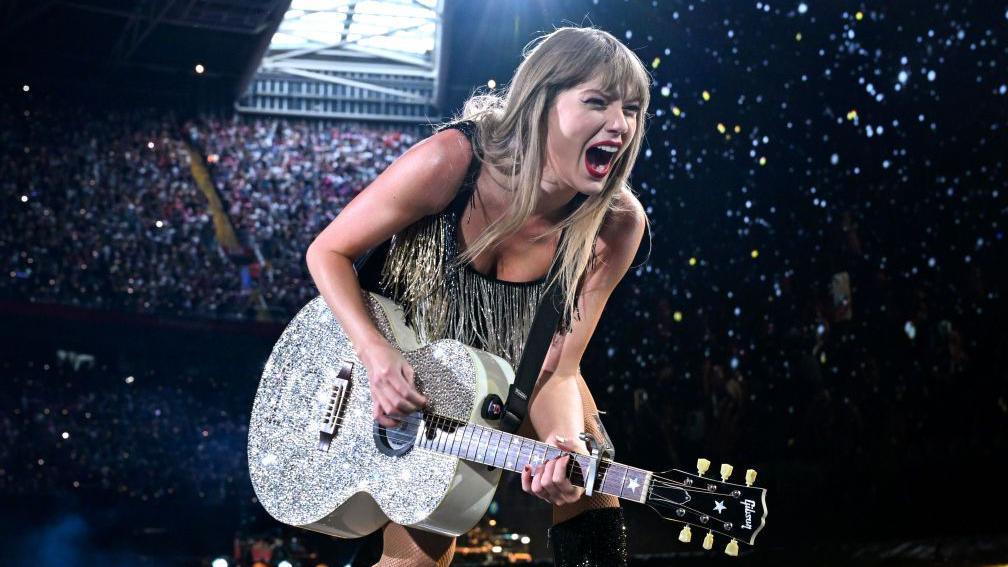
- Published5 May 2024
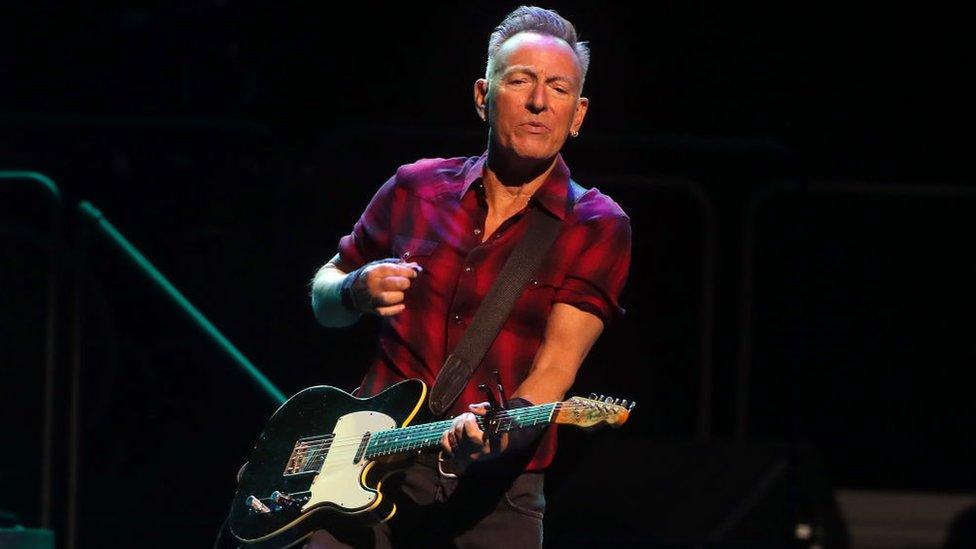
- Published12 June 2024
